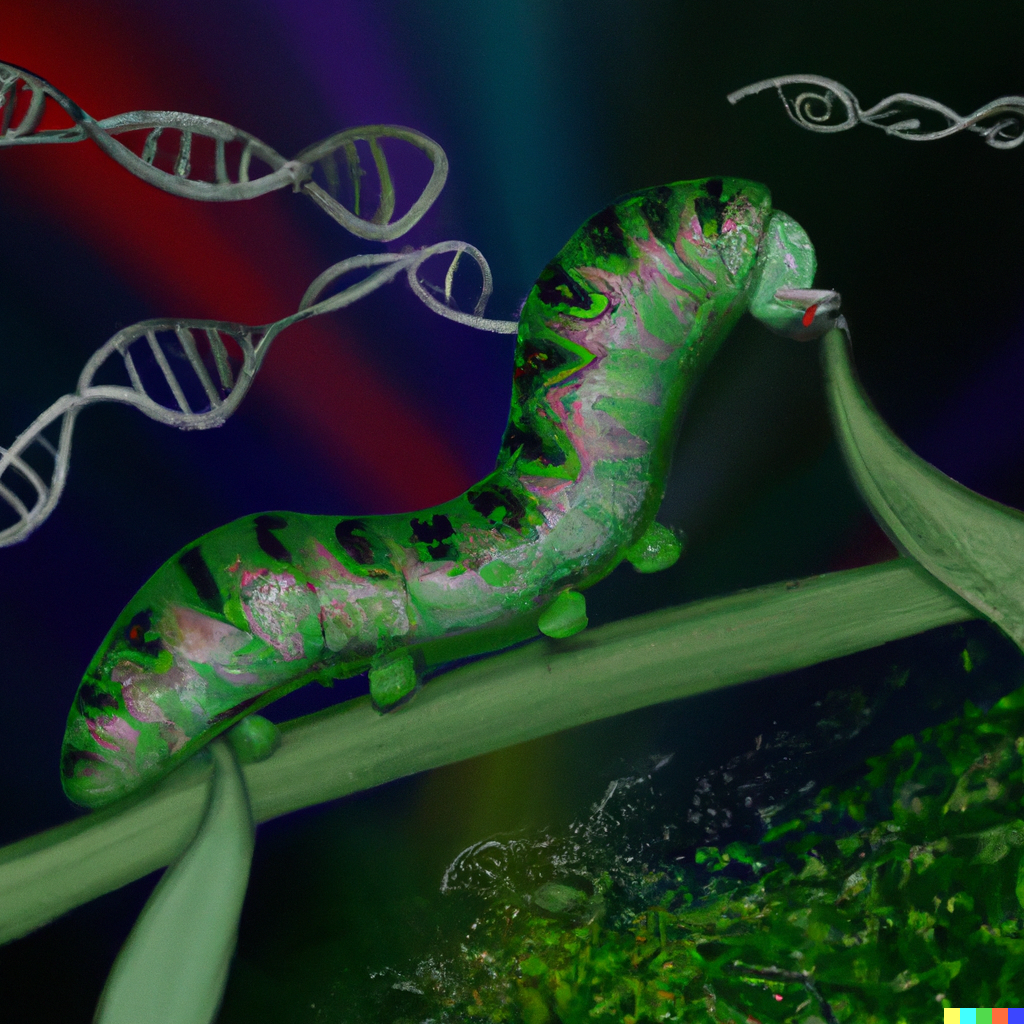Current agricultural practices heavily depend on harmful pesticides to protect crops against deadly pests and diseases. But what if plants could protect themselves? Our research uncovers an epigenetic mechanism that allows plants to 'remember' stress, providing them with long-lasting defense against pests like caterpillars. This discovery could pave the way for more sustainable crop protection strategies.
Global yields of major food crops, such as rice and wheat, are estimated to be reduced by one fifth due to damage from pests and diseases. Chemical pesticides are currently the primary control strategy in agriculture. Unfortunately, these chemicals can be harmful to human health and the environment. We need new sustainable strategies to reduce our reliance on pesticides.
Vaccination is at the forefront of our minds following the Covid-19 pandemic. Getting vaccinated boosts our immune system, making it more effective at fighting off the virus. Intriguingly, the ability to acquire resistance to future attacks following exposure to a previous treatment, also exists in plants. Understanding this phenomenon will aid the development of new crop protection technologies.
Plants can acquire resistance to pests and diseases following exposure to beneficial soil microorganisms, plant-derived chemicals or previous attack by pest or pathogen. Unlike in humans, where acquired resistance is specific to a particular attacker, in plants it is often more general and weaker, offering some protection against a variety of pests and/or diseases. Over the last 20 years, there has been considerable research on how the plant’s acquired immune system functions. One key question is how plants ‘remember’ and remain more resistant to pests and diseases over long periods of time. Studies have suggested that epigenetics could be involved.
The form and/or function of all living things, including plants, is encoded by DNA. DNA can therefore be thought of as the instruction manual for life. Intriguingly, the way this manual is interpreted can be tweaked by annotations on the DNA which are collectively described as epigenetic marks. One such mark is DNA methylation, where a specific chemical tag (the methyl group) is added to DNA. This mark does not change the sequence of the DNA, only the way DNA is interpreted and ultimately, the form and/or function of a plant. Interestingly, DNA methylation in plants can change in response to environmental stress and be passed on to new cells and tissues. As such, it offers an attractive mechanism for controlling long-lasting acquired resistance in plants.
In our recent research, published in Nature Plants, we set out to explore acquired resistance and the role of DNA methylation after treatment of young seedlings with the wound-inducible plant hormone jasmonate (JA). JA regulates multiple processes in plants, including the immediate defence responses to damage by insects. However, these immediate responses are short-lived. We wanted to investigate whether JA can also trigger long-lasting acquired resistance in Arabidopsis thaliana, the most used plant for scientific research.
To achieve our aim, we sprayed young Arabidopsis seedlings with either JA or water. After three weeks of growth, which is half a lifetime for Arabidopsis, we challenged the plants with tiny caterpillars to measure plant resistance. We found that the caterpillars grew substantially slower when fed on plants that had been treated with JA. Hence, JA treatment of Arabidopsis seedlings mediates long-lasting acquired resistance against caterpillars. Furthermore, plants with impaired DNA methylation machinery did not maintain the acquired resistance for three weeks, indicating that DNA methylation is necessary for the acquired resistance.
To explore further the importance of DNA methylation, we used sequencing machines that can measure the abundance and location of DNA methylation in a plant. Spraying Arabidopsis seedlings with JA resulted in a long-lasting reduction of DNA methylation, specifically at regions containing a type of transposable element called ATREP2. Transposable elements, otherwise known as ‘jumping genes’, can be thought of as genetic nomads, DNA sequences which move around and settle in new locations within an organism's genome. Historically, transposable elements were thought to be “junk DNA”, but in recent years it has become clear that they play an important role in gene regulation and evolution. We provided several lines of evidence suggesting that reduced DNA methylation at ATREP2 transposable elements controls long-term memory of the JA treatment and acquired resistance against caterpillars.
Our work outlines a mechanism by which plants ‘remember’ earlier exposures to pests and diseases. We plan to explore whether this also exists in food crops, such as tomato and lettuce. If so, it could inform the development of new approaches to control pests and diseases. For instance, we could develop new breeding technologies that directly introduce the epigenetic stress memory into crops to boost their immune system. This would make crops less reliant on harmful pesticides and better prepared for future outbreaks of deadly pests and diseases. Bettered prepared crops are essential for ensuring both a sustainable and reliable food supply long into the future.
Original Article:
Wilkinson, S.W., Hannan Parker, A., Muench, A. et al. Long-lasting memory of jasmonic acid-dependent immunity requires DNA demethylation and ARGONAUTE1. Nat. Plants 9, 81–95 (2023). https://doi.org/10.1038/s41477-022-01313-9
 Plant Biology
Plant Biology



